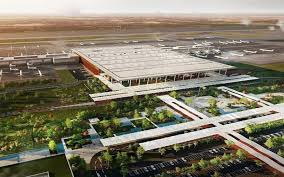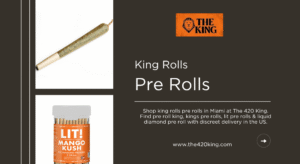
For coffee lovers, few beans rival the smooth richness and distinct flavor of Hawaiian Kona coffee. Grown on the volcanic slopes of Hawaii’s Big Island, this coffee variety offers a unique taste that’s both silky and low in acidity. But with the rise of online shopping, sifting through hundreds of listings to find authentic and high-quality beans can be tricky. From recognizing real Kona beans to picking a trustworthy source, this guide will walk you through every step to help you find the best Hawaiian Kona coffee online.
In the vast online marketplace, not all products labeled “Kona” are truly authentic. Many sellers offer blends that contain only a small percentage of actual Hawaiian Kona coffee beans, often mixed with inferior beans from other regions. To avoid being misled, buyers need to understand the terminology, labeling laws, and certification standards that guarantee real Kona beans. Whether you’re a seasoned coffee connoisseur or a curious newcomer, investing in genuine Hawaiian Kona coffee beans will ensure you enjoy the exceptional taste and quality that this specialty brew is known for.
1. Understand What Makes Kona Coffee Special
Before buying Kona coffee online, it’s essential to understand what sets it apart. True Kona coffee is grown in the Kona Coffee Belt, a narrow stretch of land on the western side of Hawaii’s Big Island. The region’s rich volcanic soil, tropical climate, and consistent rainfall make it ideal for cultivating coffee.
Kona coffee is known for its smooth body, mellow acidity, and complex flavor notes that often include hints of chocolate, fruit, and nuts. Because of these premium qualities, Kona coffee is among the most expensive coffees in the world. That’s why so many counterfeit or diluted products flood the market.
2. Learn to Read Labels and Descriptions Carefully
When shopping online, take extra time to read product labels and descriptions. If a package says “Kona Blend,” it may only contain as little as 10% Kona beans, with the rest being generic beans from other countries. Look for terms like “100% Kona Coffee,” “Single Origin,” or “Estate Grown.” These phrases indicate that the beans are grown and harvested entirely in the Kona region.
Some reputable brands will even list the specific farm or estate where the beans were grown. This level of transparency is a good indicator of authenticity and quality.
3. Choose Reputable Sellers and Roasters
The internet is filled with both trusted coffee roasters and shady resellers. To find the best Hawaiian Kona coffee beans, it’s important to buy from well-known or highly-rated suppliers. Look for companies that specialize in Hawaiian coffee and offer detailed information about their sourcing and roasting process.
Check online reviews on platforms like Trustpilot, Google, or coffee forums. A good seller will have a consistent history of satisfied customers, quick shipping, and responsive customer service.
You can also visit the websites of actual Hawaiian coffee farms. Many of these farms sell directly to consumers and offer freshly roasted beans, sample packs, and subscriptions. Supporting local farmers not only ensures authenticity but also helps preserve the Kona coffee industry.
4. Opt for Freshly Roasted Beans
No matter how high the quality, stale coffee beans will never deliver the same experience as fresh ones. When shopping online, choose sellers who roast to order or provide a roast date on the package. Ideally, beans should be consumed within 2–4 weeks of roasting for peak flavor.
Avoid buying large quantities unless you plan to use them quickly, or ensure the seller offers airtight packaging with one-way degassing valves to preserve freshness.
5. Decide on Roast Level and Grind Preference
Kona coffee beans are available in various roast levels — light, medium, and dark. Light roasts preserve the bean’s original flavor notes, while dark roasts offer more intensity and boldness. Choose the roast level based on your personal taste preference.
Also, determine whether you want whole beans or ground coffee. Whole beans are preferable if you have a grinder at home because they maintain their flavor longer. However, many online sellers offer different grind options depending on your brewing method — such as drip, French press, or espresso.
6. Look for Certifications and Awards
Certifications can help you identify genuine and sustainably-produced Kona coffee. Look for USDA Organic, Fair Trade, or Rainforest Alliance labels if you value environmental and ethical sourcing. While not all top-tier Kona farms carry these certifications (due to costs or scale), they can provide added peace of mind.
Awards from coffee competitions and recognition from industry publications are also good indicators of quality. If a particular Kona coffee has won accolades or been featured in respected magazines, chances are it’s a worthwhile purchase.
7. Beware of Bargains That Seem Too Good to Be True
Premium quality always comes with a price. If you find “Kona coffee” online at a price far below the average ($30–$60 per pound), it’s probably a blend or completely fake. Authentic 100% Kona coffee is expensive due to limited growing areas and labor-intensive harvesting methods.
Stick to reputable vendors even if they charge more — your taste buds will thank you.
Conclusion
Finding the best Hawaiian Kona coffee beans online may take a little research, but the reward is a cup of coffee unlike any other. By paying attention to labels, buying from trustworthy sellers, and understanding the unique value of Kona coffee, you can enjoy this Hawaiian treasure right in your own kitchen. Don’t settle for cheap imitations — treat yourself to the real deal and savor every smooth, flavorful sip.






